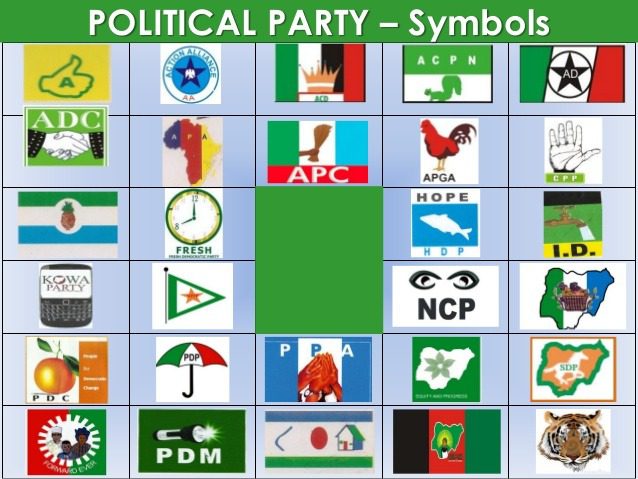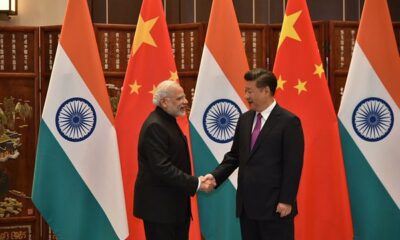Democracy & Governance
Our All-Are-Welcome Political Parties -By Ayisha Osori


“Yar’Adua said he was going to be careful with the type of people he would have in his party. Dubious people will have no place and he even mentioned names. I said well, I am sorry General, you cannot be a politician. He said why? I told him that a politician must be ready to work with everybody. If you are not prepared to accept every Jack and Harry in your party, then you cannot play politics. Every one of them has his own role. If he is a devil he will deal with other devils like him on your behalf, because these devils have votes that you want. So I told him not to reject anybody in his party.” – Shehu Shagari interview, November 5, 2000
This theory about politics and political party membership is an enduring one and explains why the party of change is the party of nothing different. It is the reason why any new mega merged party could be welcoming Sheriff into its fold in the future, though he is ostensibly the reason for a factionalised PDP. The practical application of this theory means political parties in Nigeria cannot have any qualifying membership criteria to reflect values, ethos or ideology.
If social clubs, Facebook and Twitter have community standards by which membership, participation and belonging is assessed, shouldn’t political parties have more discerning membership criteria? In the face of all the manifest problems and untapped opportunities Nigeria has, is it unreasonable or too much to ask that party members and candidates be of a certain ethical and technical standard?
The answer lies in the value of our votes and the historical elements of elections in Nigeria: violence, ballot fraud, community rigging, intimidation by security forces and the compromise of the judiciary and electoral institutions. Knowing how to win elections ensured that Lagos and a few other states could form the cradle of opposition to PDP, especially during the era of garrison amala politics that were the 2003 to 2007 elections. Gains made by INEC’s card readers not withstanding, these elements remain with us and the model is not sustainable. When disciples of this theory say ‘politics is a game of numbers’, they are not referring to voters but to the number of experts in winning elections that are piled up within each party. If our politics were about service delivery, good governance and making the best deals for citizens and the future of the country, political parties would take more care with recruiting members. Asides from our dysfunctional governance structures, democracy is not delivering dividends because the character and intent of politicians have not changed.
There have been attempts to deal with this problem. The 1999 Constitution provides that those convicted for dishonesty and fraud or indicted for embezzlement are disqualified from contesting. In the past, the election management bodies had powers to disqualify candidates of suspect character and as recently as 2007, EFCC had a list of Nigerians considered unfit to contest elections. The limitations with the Constitution are obvious – it is near impossible for our courts to convict the type of politician every political party wants and no constitution needs to go into details about the character of politicians. The challenge with electoral management bodies and agencies such as EFCC taking up this role is how open they are to being abused and manipulated to victimise political opponents. EFCC’s list in 2007 was controversial, not only for the people on it perceived to be opponents of outgoing President Obasanjo but for those removed from the list that went from 135 persons to 37.
The solution lies with the political parties – as the most legitimate platforms for managing members and candidates. They are not perfect – PDP’s members re-registration process in 2005 shows us how easily political parties can be used to blackmail and expel unwelcome members – a problem not limited to Nigeria, but this also proves that if political parties want to manage membership differently, they could. First, our political parties must be ready to change their raison d’etre from winning elections to governing effectively and be prepared to show voters how through the execution of their ideas. This will influence the type of members and candidates’ parties actively recruit and impact on how parties are structured internally. Next, parties need to adopt distinguishing membership criteria and borrow elements from Latin America where new members are extensively vetted, trained, put on probation and denied full membership if they are found unsatisfactory. The final piece comes from outside the parties. Nigerians must accept that those who owe their success and stature in the world to the current political structures are not going to change them; the pressure for parties to evolve might need to come from outside. Voters need to demand better candidates and amongst other things, boycott parties who will not deliver.
The ‘all are welcome’ theory is a lie anyway – only those with a type of political experience are welcome. It explains why some are denied registration while others, despite their track record, are accepted, and why joining a party is difficult. Parties have a typical type of member and candidate in mind – those best suited for variations of the Adedibu-Ladoja, Uba-Ngige experience and changing this culture will take years. What we need is a few determined people prepared to get the ball rolling with a different type of political party – which might not win elections in the short term but will in the long term if they give us the alternatives we need to progress.
Pleased as we are with the progress we’ve made managing civil rule since 1999, our rating of democracy has to extend beyond executing election plans to assessing the state of our society and our lives. Weak members are critical to fraudulent primaries and fraudulent primaries are the bedrock of our electoral process. While politicians plot for ‘same old’, Nigerians and voters need to start organising for and around something new and sustainable.
Ayisha Osori is an ordinary citizen who writes from Abuja. The views in this article are personal and not attributable to any organisation the author is affiliated with.



















